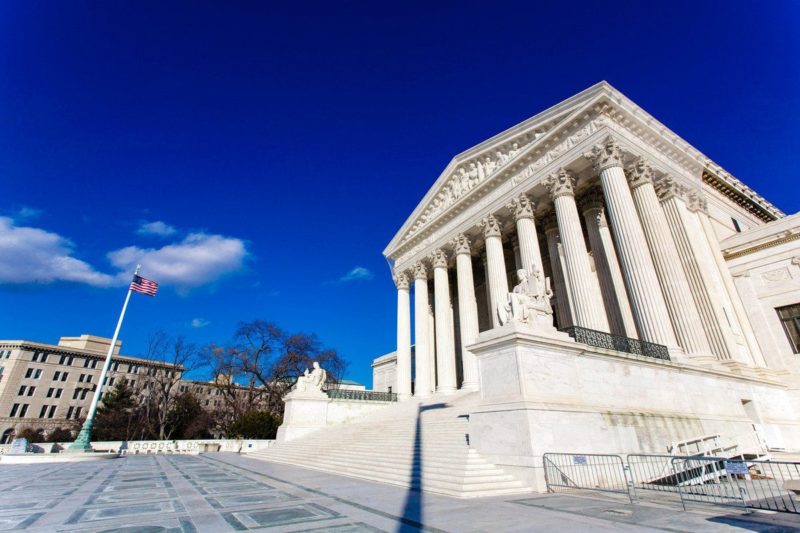Virginia School Board Asks Supreme Court to Step In on Trans Rights
Attorneys representing a Virginia school board want the Supreme Court to block the Obama administration's efforts at protecting transgender students.

Lawyers for a Virginia school district, according to a Tuesday filing, will ask the Supreme Court to intervene in the case of a transgender student who has sued for the right to use school bathrooms consistent with his gender identity.
The case involves Gavin Grimm, a transgender student who sued the Gloucester County School Board over its policy requiring students to use restrooms that reflect their “biological gender.” Grimm’s attorneys argue that the rule, which effectively expels transgender students from communal restrooms and requires them to use “alternative” restroom facilities, is unconstitutional under the 14th Amendment and violates Title IX of the U.S. Education Amendments of 1972, a federal law prohibiting sex discrimination at schools that receive federal funding.
Grimm’s attorneys had asked a federal court for an injunction blocking the policy, but the lower court refused, ruling the school board’s policy did not violate the ban on sex discrimination in Title IX. The lower court also ruled the privacy interests of other students outweighed potential harm to Grimm in using a different bathroom. Grimm’s attorneys appealed.
In the interim, the Obama administration stepped in filing an appellate brief on Grimm’s behalf and arguing the Department of Education’s official position was that Title IX protected Grimm’s rights to use a restroom consistent with his gender identity. And in April, a three-judge panel of the U.S. Court of Appeals for the Fourth Circuit ruled in favor of Grimm, holding “the [Education] Department’s interpretation of its own regulation … as it relates to restroom access by transgender individuals, is entitled to … deference and is to be accorded controlling weight in this case.”
The full panel of judges for the Fourth Circuit refused in May to rehear the case, leaving in place the original order.
The petition to be filed with the Roberts Court asks the justices to re-examine a line of legal precedent relied on by the Fourth Circuit in ruling for Grimm. This precedent states federal agencies like the Department of Education have substantial leeway in interpreting the regulations for laws they are responsible for enforcing, like Title IX.
Earlier this term the Court turned away a similar challenge to the Department of Education’s interpretation of its regulations with regards to student loan financing.
According to attorneys for the school board, the Roberts Court must take up the Grimm case because the fight over transgender student bathroom access “raises fundamental issues of bodily privacy rights” in addition to serious questions about agency authority and constitutional separation of powers.
The petition will also ask the Roberts Court to issue a stay of the Fourth Circuit decision.
Attorneys representing Grimm will have an opportunity to respond to the filing. Given the Roberts’ Court current calendar, should the Court agree to take the case, the earliest it would hear arguments is next year.
